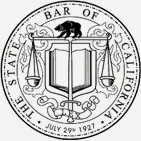
408-971-6270
Supreme Court Holds That A Law Firm Conducting Foreclosures Is Not A “Debt Collector” Under the Fair Debt Collection Practices Act
 This week the Supreme Court issued their opinion in Obduskey v. McCarthy & Holthus LLP. In 2007, Obduskey bought a house in Colorado, borrowed $330k from a lender and secured repayment of the loan with a mortgage (or deed of trust) against the house. In 2014, Wells Fargo hired the law firm of McCarthy & Holthus LLP to commence foreclosure as the borrower was in default.
This week the Supreme Court issued their opinion in Obduskey v. McCarthy & Holthus LLP. In 2007, Obduskey bought a house in Colorado, borrowed $330k from a lender and secured repayment of the loan with a mortgage (or deed of trust) against the house. In 2014, Wells Fargo hired the law firm of McCarthy & Holthus LLP to commence foreclosure as the borrower was in default.
The firm sent a letter to borrower as required under state law to commence the foreclosure. The opinion did not publish the text of that initial letter but I suspect it contained a “mini Miranda” which is common in demand letters, ie, that this could be considered an attempt to collect a debt under the Fair Debt Collection Practices Act. (“FDCPA”). The borrower disputed the debt and invoked section 1692g)b of the FDCPA which would require a debt collection to cease collection until it obtains verification of the debt.
The firm continued with its foreclosure proceedings. The borrower filed suit alleging the law firm had violated the FDCPA. The district court dismissed, concluding the law firm was not a “debt collection” under the Act. The Tenth Circuit affirmed.
The Supreme Court upheld it, noting that the law firm was engaged to enforce a security interest which would normally be debt collection, but that the Act itself carved out a separate limitation for those enforcing security interests. The opinion spent some time looking at the express wording of the statute which distinguished any person or business whose “principle purpose of which is the enforcement of security interests.” The Court concluded that McCarthy & Holthus did indeed fall into this limited category. Accordingly as it was limited, the broader prohibitions in the Act did not apply to McCarthy & Holthus, as opposed to the broader category of “debt collector”.
The opinion listed three reasons for this conclusion:
1) The express wording itself; and
2) The likelihood that the statute was intended to avoid conflict the with each state’s preexisting foreclosure processes; and
3) The Court found the legislative history persuasive, as two versions were proposed and the final version had all the “earmarks of a compromise”.
The second consideration was considerably more interesting for me given that California’s foreclosure statutes expressly contain a number of communication requirements after the Homeowner’s Bill of Rights. (I’ve written about HBOR at length, most recently, here, and here.) Certainly it is reassuring to know that by following the state law, which requires multiple contacts with the borrower, that one is not violating federal law which would ordinarily prohibit further communications with the borrower!
Justice Sotomayor concurred and noted in her concurring opinion that it was a close call.
Stay tuned to see if Congress amends or revises this 40+ year old law in light of this ruling.
[Obduskey v. McCarthy & Holthus LLP March 20, 2019]
Related Posts
By accepting you will be accessing a service provided by a third-party external to https://www.diemerwei.com/






